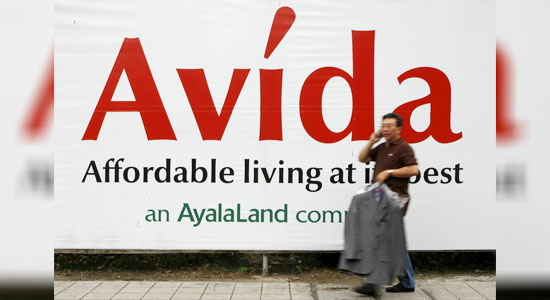In a media briefing in Makati City on Monday, the country’s oldest conglomerate announced its net income attributable to the parent grew 17% from the P22.28 billion booked for 2015. Earnings per share accordingly rose to P39.88 from P33.89.
Ayala received P32 billion or 14% more earnings from its businesses, as Bank of the Philippine Islands (BPI) and Ayala Land, Inc. turned in 19% and 18% more earnings. The contributions of AC Energy Holdings, Inc. and AC Industrial Technology Holdings, Inc. soared 27% and 51% alongside.
In the fourth quarter alone, Ayala booked a 39% year-on-year increase in earnings to P6.4 billion, following a 27% surge in the equity contribution of its businesses to P8.4 billion.
“This is really on the back of the very strong performance of Ayala Land, Globe and to a little extent our power and automotive businesses,” Ayala Chief Financial Officer Jose Teodoro K. Limcaoco said during the media briefing.
Last year, Ayala Land netted P20.9 billion or 19% above the P17.6 billion posted for 2015, after growing its consolidated revenues 16% to P124.6 billion from P107.2 billion.
Residential and office sales pushed its revenues from the development of properties 17% to P79.2 billion, while the continued expansion of its leasable portfolio lifted its recurring income 12% to P15 billion.
BPI, the country’s third-largest lender in terms of asset, booked a 21% increase in net income to P22.05 billion from P18.04 billion, largely on higher interest income, securities trading gains and higher fees from its transactional and bancassurance businesses.
Globe Telecom grew its core net income 6% to P16.01 billion from P15.13 billion on higher uptake for data-related products and expanding subscriber base for its mobile and broadband services. Its bottom line, however, dipped 4% to P15.88 billion from P16.48 billion after incurring additional expenses for the acquisition of San Miguel Corp.’s telecommunication assets, among others.
Manila Water Company, Inc. posted P6.07 billion, a 2% increase from the P5.96 billion reported for 2015. It generated revenues amounting 5% higher to P17.71 billion from P16.94 billion, as billed volume within its service coverage area rose 5% to 719.3 million cubic meters.
AC Industrials earned 29% higher at P1.8 billion, as robust vehicle sales across brands and higher contribution from the distribution businesses propelled the automotive segment.
In electronics manufacturing, listed Integrated Micro-Electronics, Inc. posted a 2.5% lower net income of $28.1 million, as costs related to strategic acquisitions and the impact of the yuan’s fluctuation offset the 4% uptick in consolidated revenues to $843 million.
AC Energy booked a 25% surge in net income to P2.7 billion, as equity earnings from investees climbed 67% to P1.8 billion on higher operating efficiencies of GNPower Mariveles and the operation of South Luzon Thermal Energy Corp. It also benefitted from the partial sale of shares in South Luzon Thermal Energy Corp.
Last year, AC Energy surpassed its target of expanding its attributable power generation capacity to 1,000 megawatts. The power business is now looking to double its equity commitment to $1.6 billion and capacity to 2,000 megawatts by 2020.
AC Infrastructure Holdings Corp., meanwhile, continued to execute three public-private partnership projects. It intends to undertake the redevelopment of the Ninoy Aquino International Airport and submit other project proposals to the government.
“Ayala capped its five-year strategic target in 2016 with net income expanding nearly threefold and a 23% compounded annual growth rate since we put the plan in place in 2011,” President and Chief Operating Officer Fernando Zobel de Ayala noted in a statement.
The listed conglomerate had targeted to grow its earnings to P25 billion by 2020, from the P9.2 billion recorded for 2011.
Last year’s results position Ayala halfway through its next target: P50 billion in net income and 20% shareholder return on common equity toward 2020. It also looks to increasing the equity earnings contribution of non-listed business to 20% and that of the Southeast Asian operations to 10%.
“If you look at how much capex (capital expenditures) we’ve spent as a group in the past five years, we’re close to P720 billion, reaffirming our confidence in the country and our future plans,” Mr. Limcaoco noted.
Ayala programmed P185 billion to further grow its property, telecommunications and water businesses as well as ramp up its operations in the power, industrial technologies, health care and education sectors this year. The budget represents a 13% increase from the P164 billion spent in 2016.
The conglomerate also continues to scout for acquisitions particularly in disruptive technologies relevant to its current businesses. It has recently invested about $50 billion in a start-up working on solar technology in Silicon Valley and online fashion marketplace Zalora Philippines, among others.
“We’re certainly putting a bigger effort today to look for these types of investments,” Mr. Limcaoco noted.
Shares in Ayala closed P7 or 0.86% higher at P822 apiece on the Philippine Stock Exchange on Monday, tracking an uptrend across the region and partly triggered by bargain hunting in the case of the local bourse.



